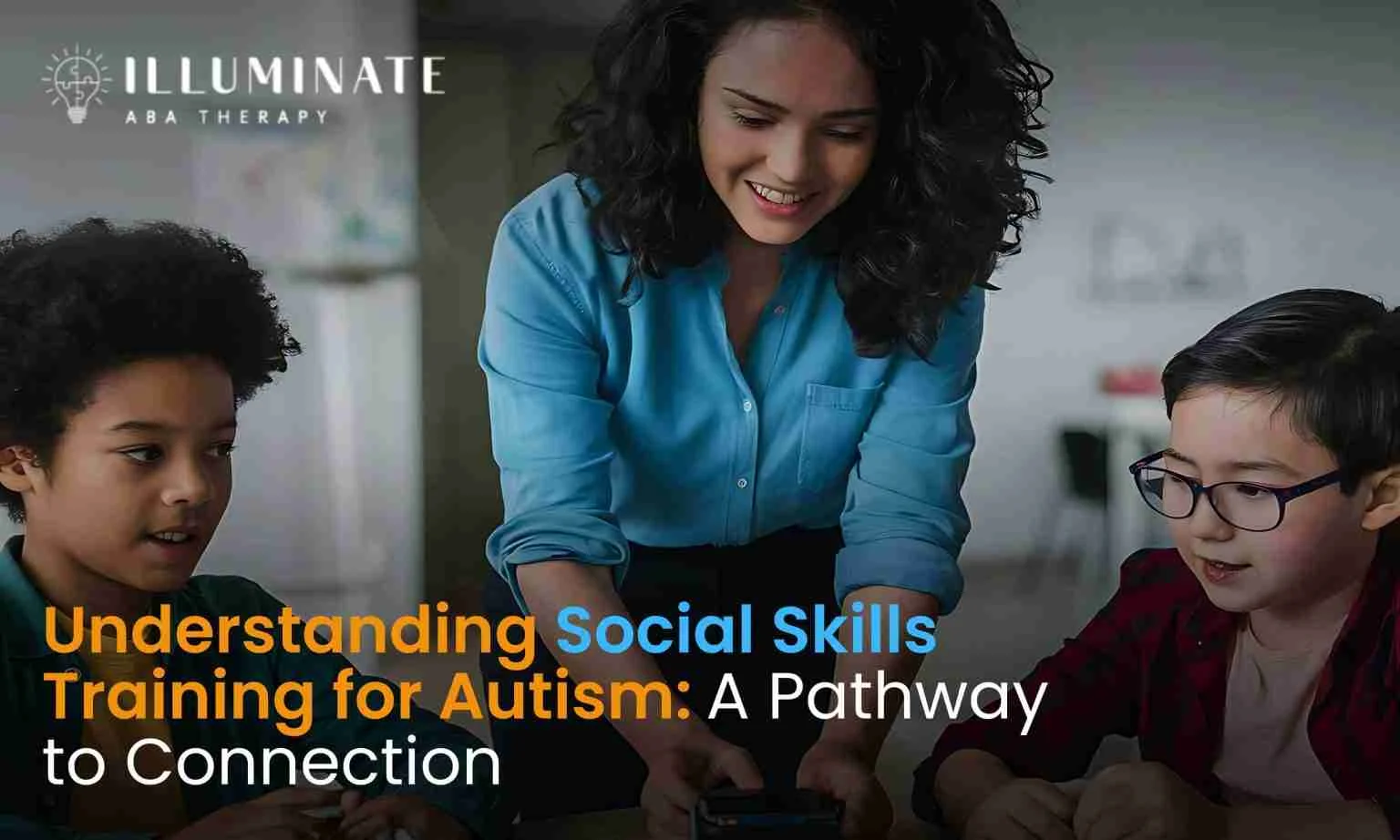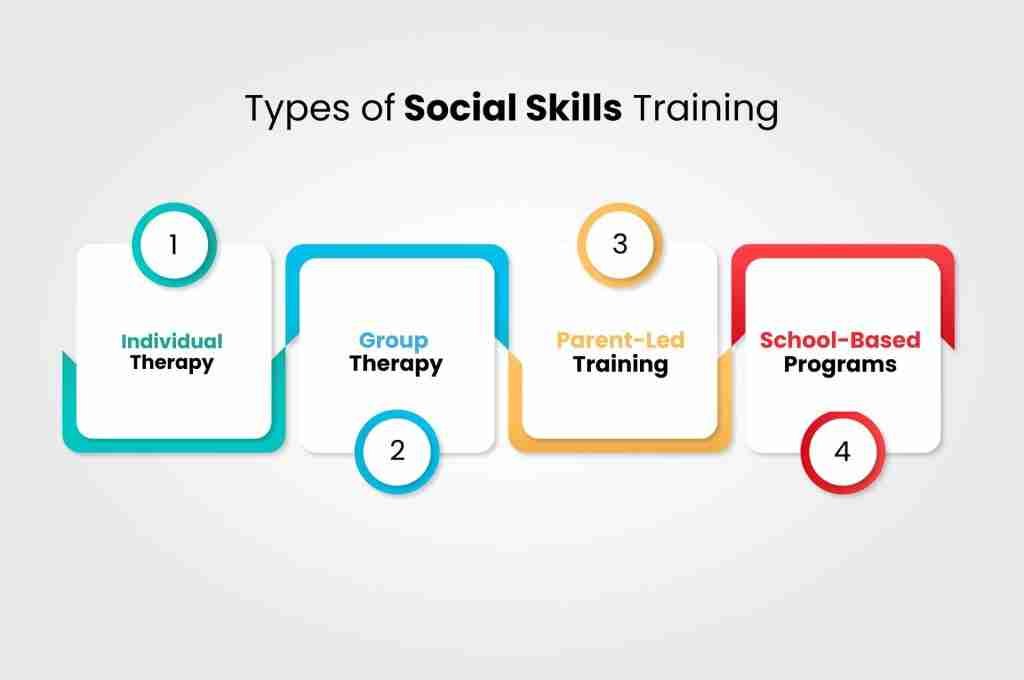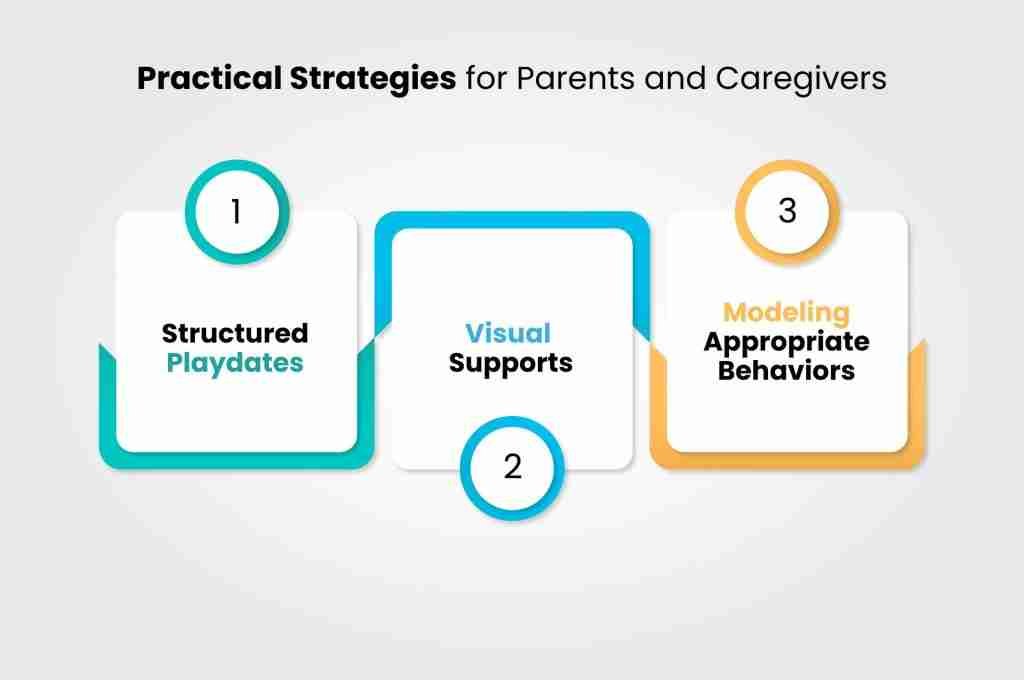Understanding Social Skills Training for Autism: A Pathway to Connection
ABA TherapyJuly 17, 2025

Introduction to Social Skills Training (SST)
Social Skills Training (SST) is a structured approach designed to help individuals, particularly those on the autism spectrum, enhance their social interactions and communication abilities.
For many individuals with autism, social skills can be particularly challenging due to difficulties in understanding social cues, forming friendships, and engaging in group activities. SST aims to bridge these gaps by providing targeted instruction that fosters communication, relationship-building, and an understanding of social norms.
The relevance of SST cannot be overstated. It serves as a vital tool in empowering individuals with autism to navigate social landscapes more effectively. By developing these skills, individuals can experience improved interactions and a greater sense of belonging.
Table of Contents
The Importance of Social Skills for Individuals with Autism
The impact of social skills deficits on daily life is profound. Individuals with autism may struggle with:
- Forming Friendships: Difficulty initiating conversations or understanding the dynamics of friendships can lead to isolation.
- Understanding Non-Verbal Cues: Many social interactions rely on body language and facial expressions, which can be challenging for those on the spectrum.
- Participating in Group Activities: Engaging in team sports or group projects often requires a level of social interaction that can be daunting.
Improving social skills not only enhances day-to-day interactions but also contributes to long-term benefits such as increased independence and an improved quality of life.
As individuals learn to navigate social situations more effectively, they often experience greater satisfaction in their relationships and daily activities.
How Social Skills Training Works
SST encompasses various components that facilitate learning and practice:
- Role-Playing: This technique allows individuals to rehearse social scenarios in a safe environment.
- Modeling: Therapists demonstrate appropriate social behaviors for individuals to observe and replicate.
- Direct Instruction: Explicit teaching of social rules and expectations helps clarify complex concepts.
- Practice in Natural Environments: Opportunities to apply learned skills in real-world settings reinforce learning.
Common skills taught in SST include:
- Conversational Skills: Learning how to take turns, maintain eye contact, and interpret body language.
- Emotional Regulation: Techniques for managing emotions during social interactions.
- Perspective-Taking: Understanding the thoughts and feelings of others to foster empathy.
- Conflict Resolution and Problem-Solving: Strategies for navigating disagreements effectively.
Types of Social Skills Training

SST can be delivered through various approaches tailored to individual needs:
- Individual Therapy: Personalized sessions focusing on specific challenges faced by the individual.
- Group Therapy: Structured groups that provide opportunities for peer interaction and practice.
- Parent-Led Training: Coaching for parents to reinforce skills at home.
- School-Based Programs: Integration of SST into classroom settings or extracurricular activities.
Social Skills Training in ABA Therapy
Applied Behavior Analysis (ABA) therapy often incorporates SST as a core component. In this context, reinforcement techniques are utilized to encourage the acquisition and generalization of social skills across different environments. Prompt fading is also employed to help individuals gradually gain independence in their social interactions.
Challenges in Social Skills Training
Despite its benefits, teaching social skills poses challenges:
- Generalization of Skills: Individuals may struggle to apply learned skills across different contexts or with various peers.
- Maintaining Motivation: Keeping individuals engaged in training can be difficult.
To address these challenges, consistency in training is crucial. Collaboration between therapists and caregivers ensures that skills are reinforced across environments. Additionally, creating opportunities for real-world practice helps solidify learning.
Practical Strategies for Parents and Caregivers

Parents play a pivotal role in supporting their child's social development. Here are some practical strategies:
- Structured Playdates: Organize playdates with clear expectations to facilitate interaction.
- Visual Supports: Use visual aids like charts or pictures to illustrate social concepts.
- Modeling Appropriate Behaviors: Demonstrate desired behaviors during everyday activities.
Engaging in games that promote communication and teamwork can also enhance social interaction. Resources such as books on SST or online workshops can provide further guidance for parents eager to support their child's development.
The Benefits of Social Skills Training
Evidence supports the effectiveness of SST in improving social functioning among individuals with autism. Research indicates that enhanced social skills lead to:
- Better Relationships: Improved ability to connect with peers fosters meaningful friendships.
- Employment Opportunities: Stronger communication skills open doors in professional settings.
- Overall Well-being: Enhanced quality of life through enriched personal connections.
Conclusion
Social Skills Training is an essential intervention for individuals with autism, offering tools that facilitate better communication and relationship-building. Parents and professionals are encouraged to explore SST as a viable option for enhancing social interactions.
For those interested in implementing SST or seeking additional support, consulting with ABA therapists can provide valuable insights into effective strategies tailored to individual needs. At Illuminate ABA, we are dedicated to supporting families on this journey towards improved social connection and overall well-being.
Learn More: What is a Behavior Intervention Plan (BIP)
